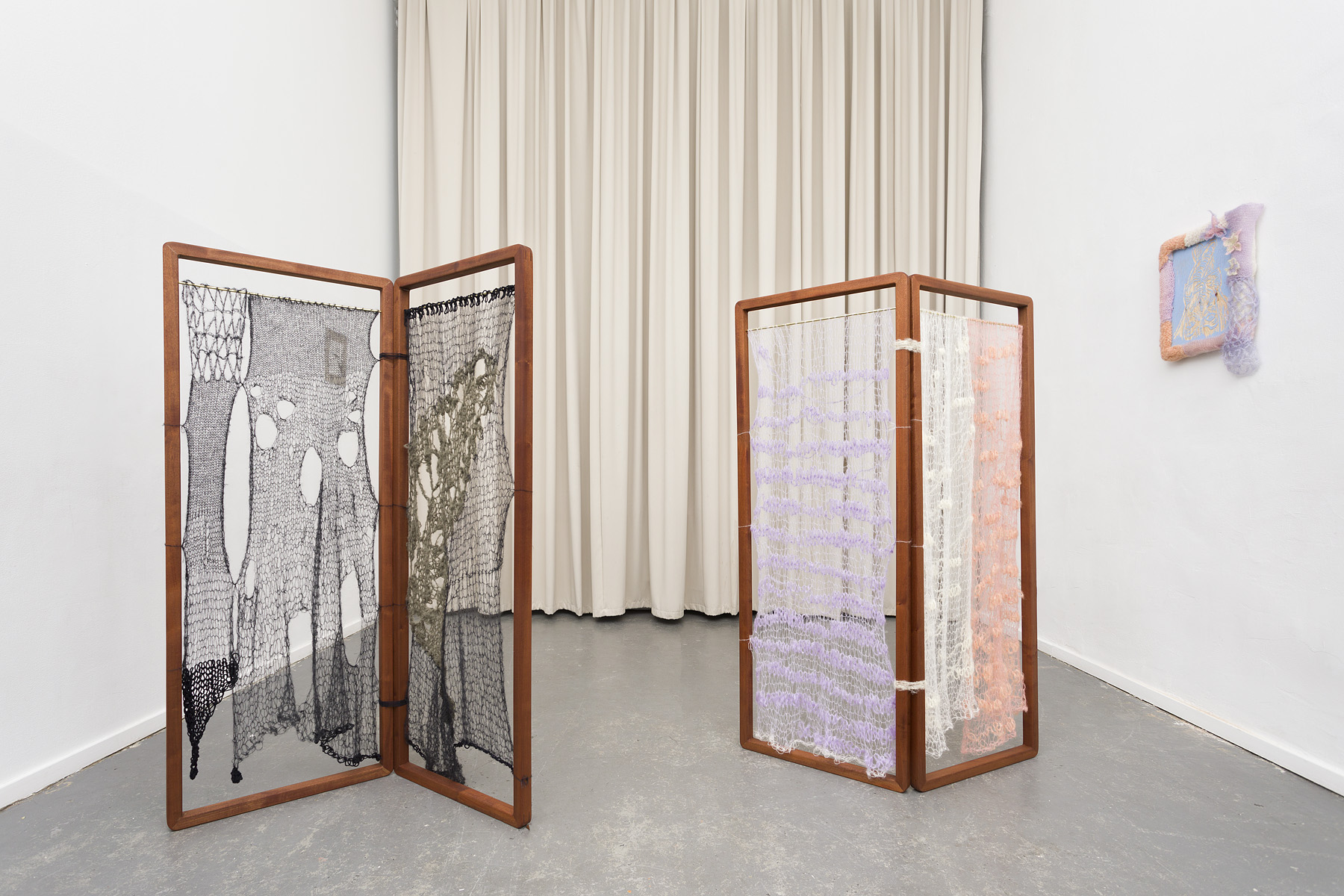
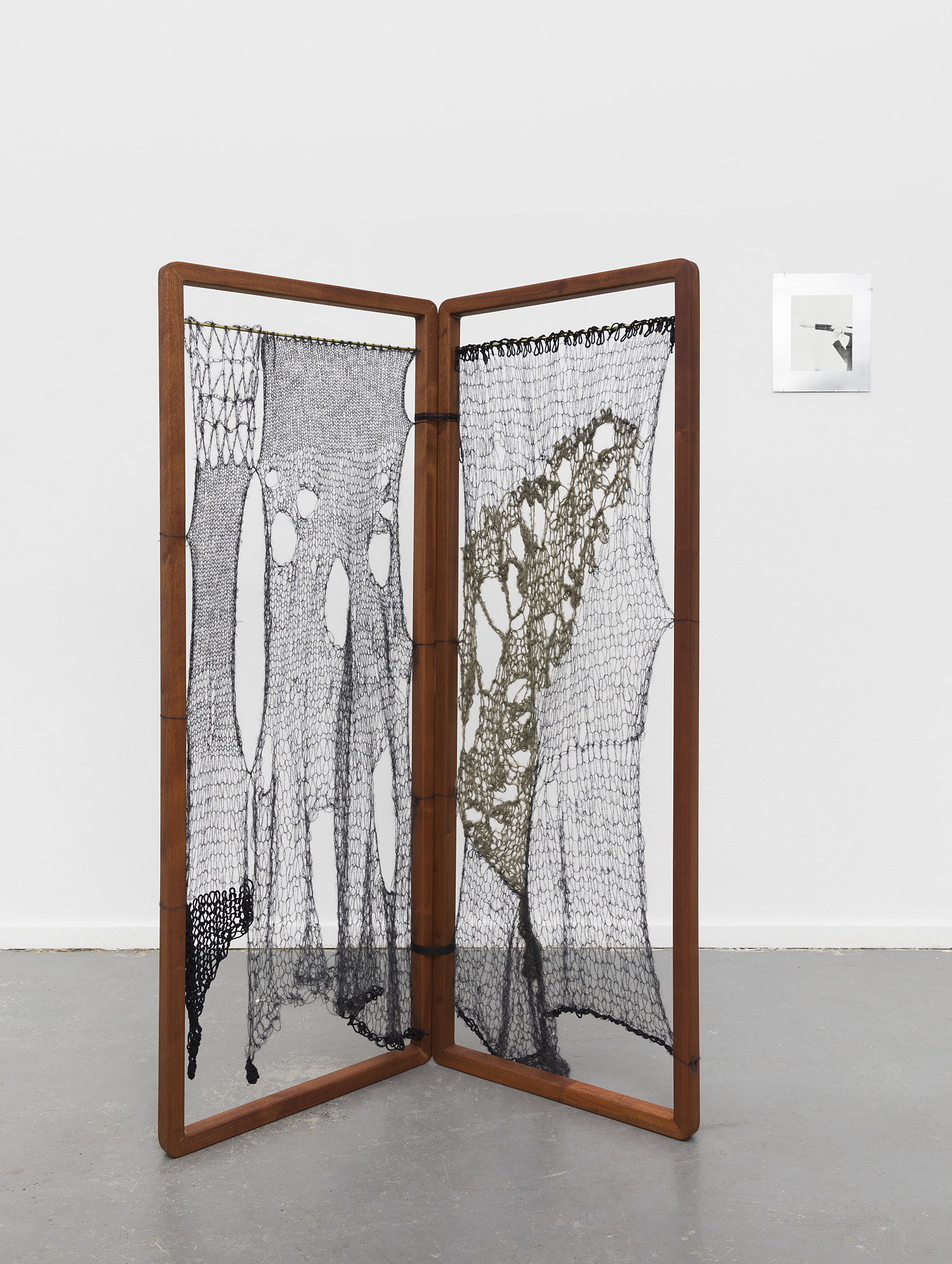
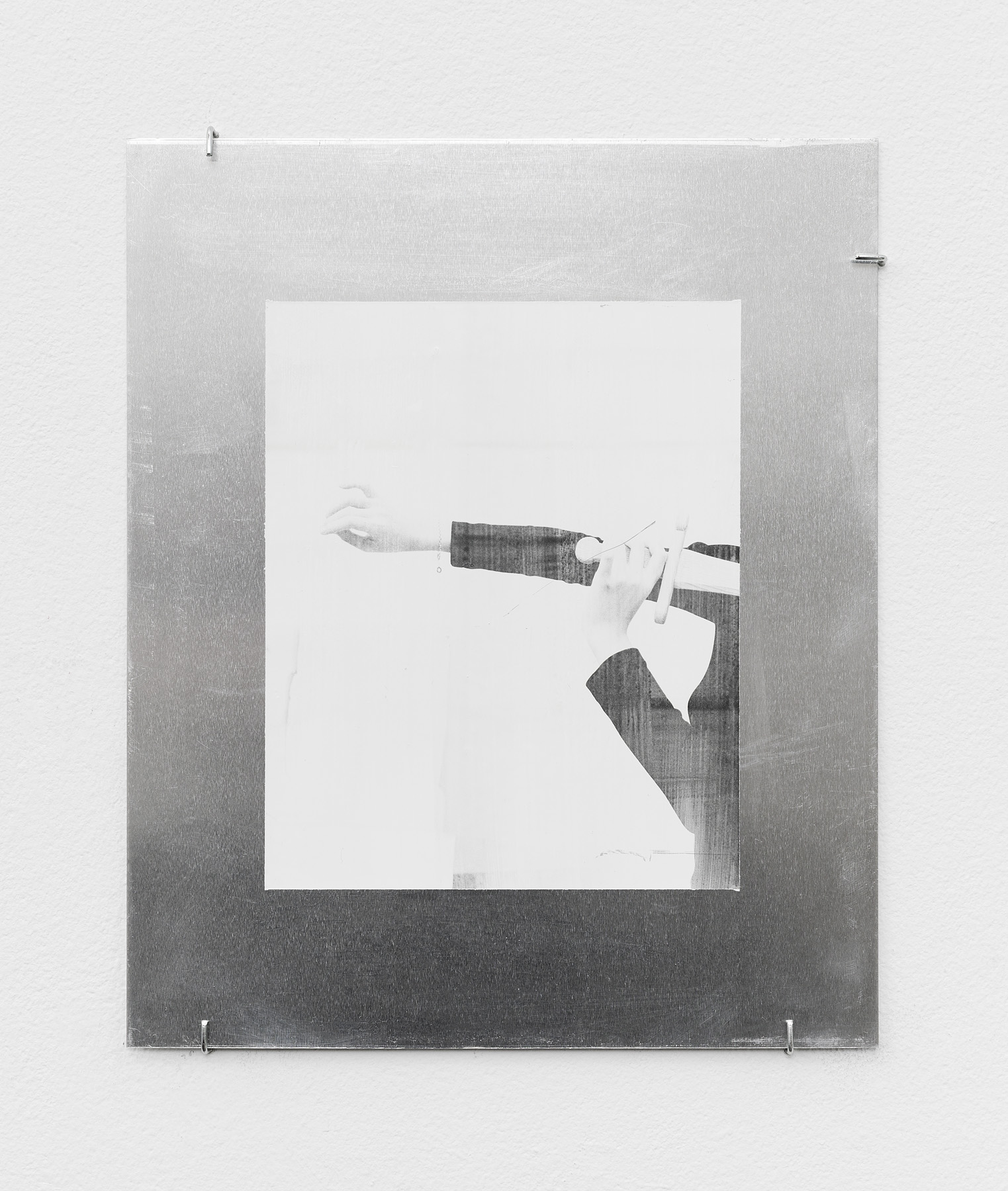
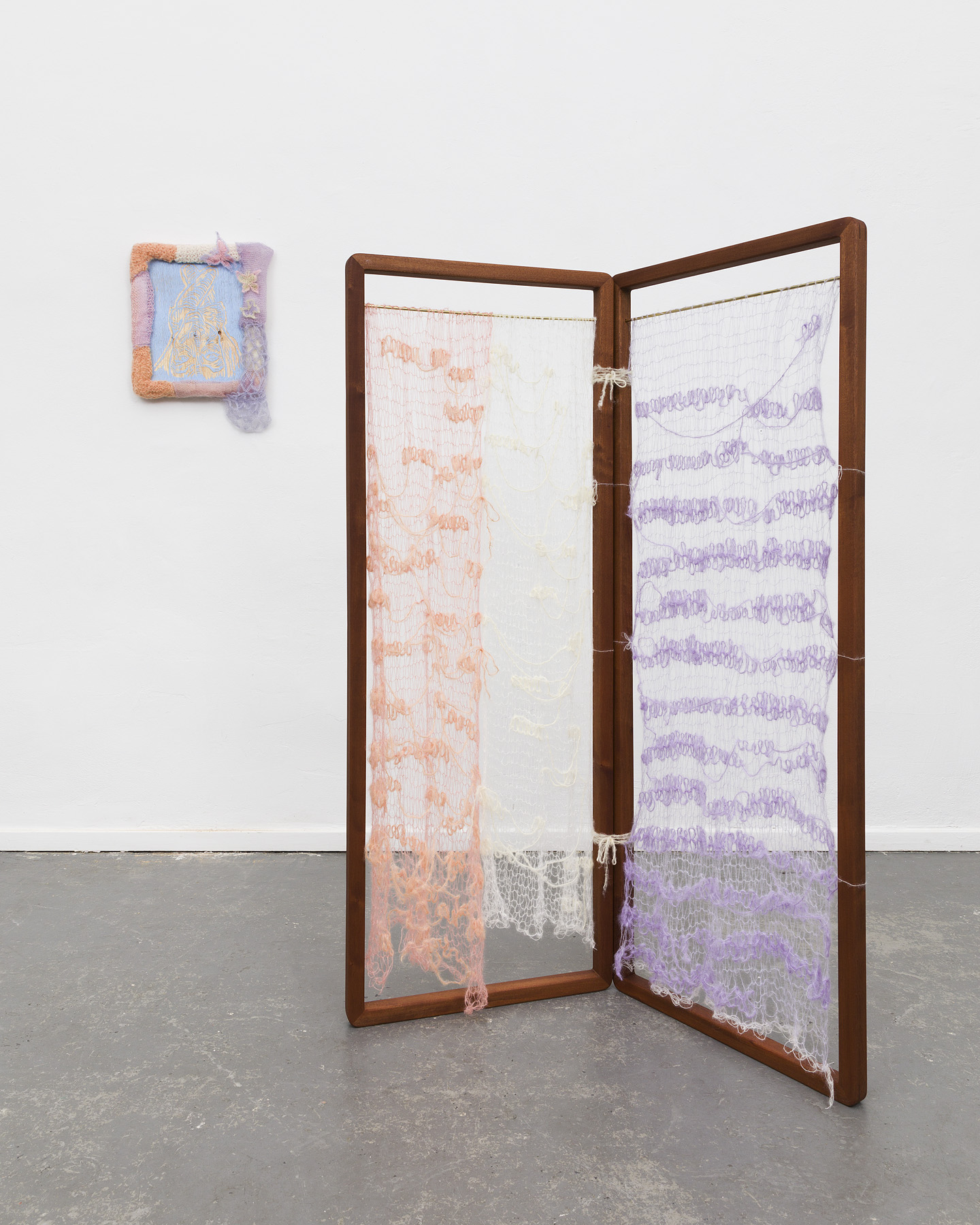
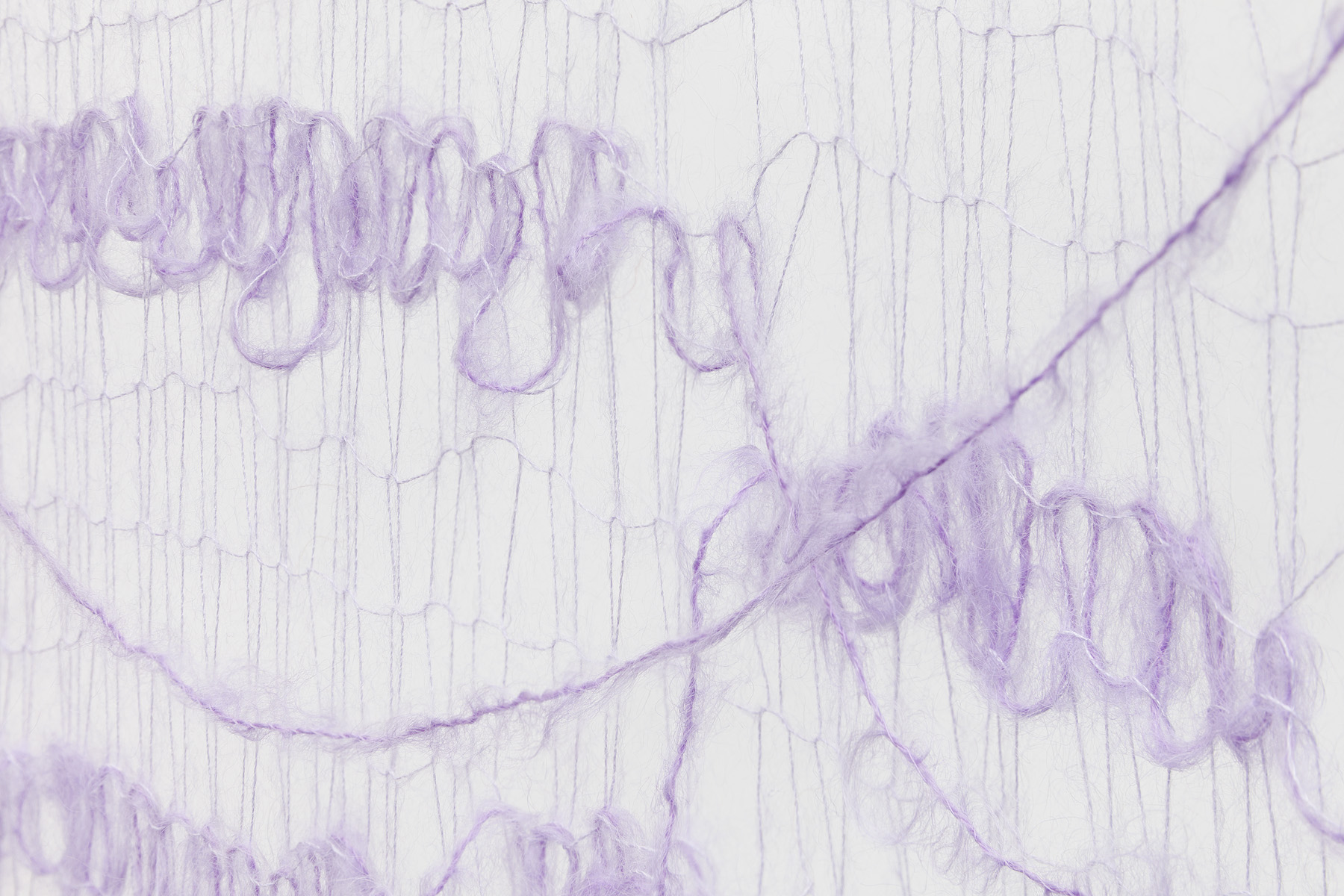
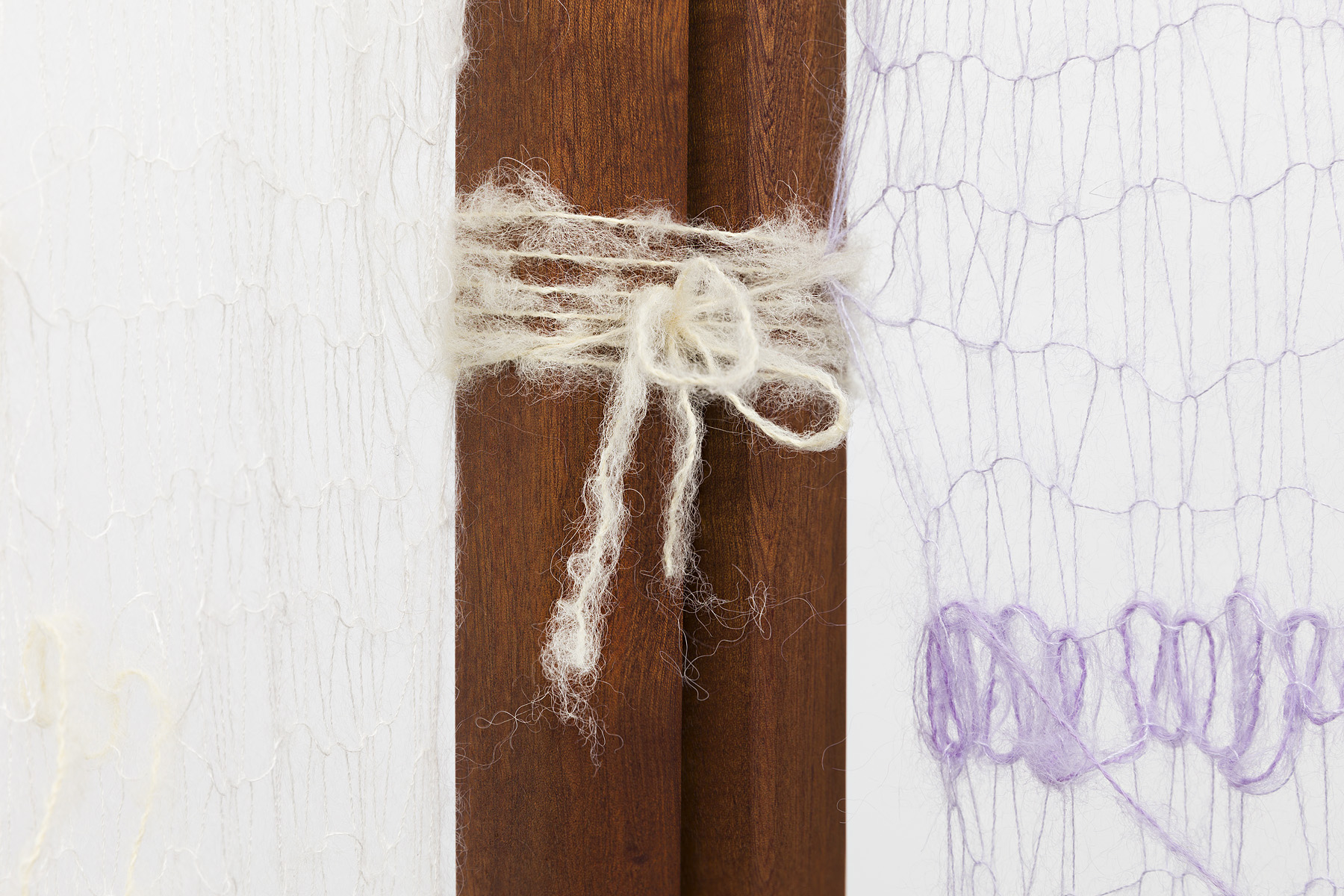
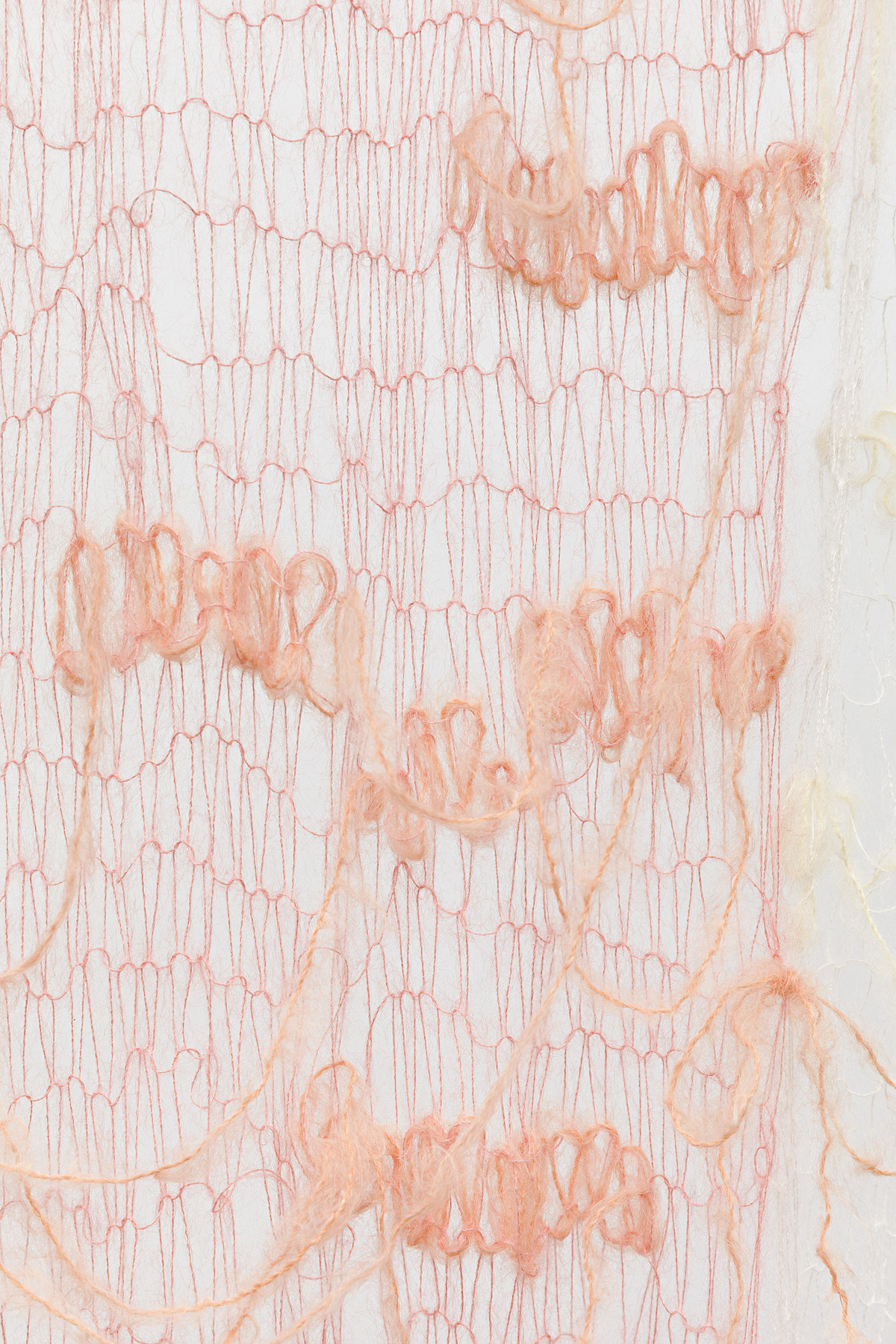
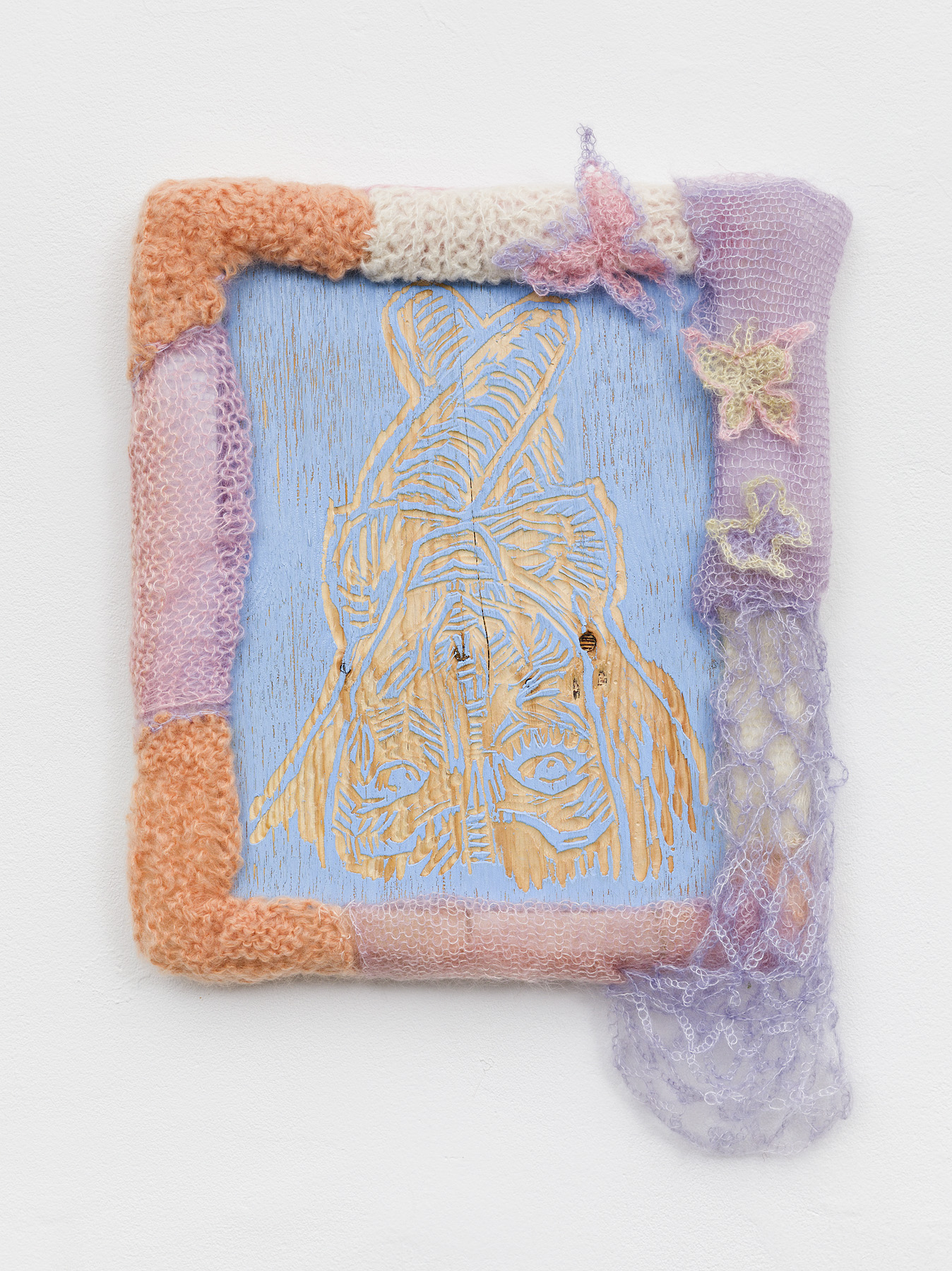
Your Silence Will Not Protect You, 2023
Silent Reversion, 2023
160 x 50 x 5 cm
Mahagoni Wood, Mohair, Brass
Illusory Conscience, 2023
Ming Yuan
Black Magic Print on Aluminium
23 × 29 cm2
In Venice, Pink Lamp, 2022
Ming Yuan
Wood, Mohair, Ink
42 X 62 x5 cm4
In Brief Rally of Radical Comfort, Love and Sacrifice, 2023
Ming Yuan
Sound Installation
26 Minutes
link to the audio work
Silent Reversion, 2023
Ming Yuan
160 x 50 x 5 cm
Mahagoni Wood, Mohair, Brass
Illusory Conscience, 2023
Ming Yuan
Black Magic Print on Aluminium
23 × 29 cm2
In Venice, Pink Lamp, 2022
Ming Yuan
Wood, Mohair, Ink
42 X 62 x5 cm4
In Brief Rally of Radical Comfort, Love and Sacrifice, 2023
Ming Yuan
Sound Installation
26 Minutes
link to the audio work
Photography: Ivan Murzin
A colorful handmade mahagony room divider is knitted according to the graphic score of the folktale GuiYingZiJing 桂英自尽. By analysing the occurrence of silence, instrument and vocals, I wanted to find out if there are similarities in the dramatic high points of these tragic musical opera pieces. The darker one is knitted with black and green mohair, improvised around the idea of mourning and trauma for the women who took their own life in the name of love or desperation. The scenery creates a spiritual space where we enter these tragic female character’s privacy, encounter their absence and pathologically aestheticised suffering.
The room is accompanied by a sound installation which is based on the melody of the folksong of Liangzhu 梁祝, in which after the female character also committed suicide to sacrifice for her dead lover, a storm and lightening split over their grave and two butterflies fly out of the ground. I reinterpreted the traditional orchestral melody into an ambient new age dreamy soundscape of 26’ minutes. The music transcends from figurative melody into a peaceful abstraction of floating vibrations. The sound suggests a mind space in which justice, love, suffering vanish and enters the void of metaphysics.
One of the most iconic image in Chinese opera history is the farewell scene in Bawang Bie Ji (霸王别姬 ’Farewell My Concubine’). The great beauty Yuji is the mistress of King Xiangyu. She accompanied him to the battlefield for months, and when they were about to loose the war, she decisively took Xiangyu’s sword and killed herself to free him from the fear of loosing her. Yuji holding her lover’s sword with beautiful and powerful hand gestures and starring at the ground in deep sadness and conviction became this iconic dramatic image of a tragic and heroic love story. I am fascinated yet in rage for what a pity it is that another individual has taken her own life under the education of obligatory sacrifice. Illusory conscience, 2023 is an analogue photography documentation confronting and questioning the tradition of dramatic moral.
I focus especially on thees female characters who are fighting against the adversities of their personal and social life because I’ve been working for a long time with the topic of alternative solutions to react to violence in a non-violent way, which can break the toxic cycle of mirroring retaliation.
These female characters usually react to violence with internal violations such as suicide or sacrifice and their ghost will finally do justice for them and punish the villains. I found this logic of drama story construction very fascinating yet knowing it is not applicable in our modern zero-death society. If good and evil grew together, when we are not allowed to release these intensity in the old ways, then what are new possibilities for them to take form? Looking at The Spirit of Terrorism by Jean Baudrillard, he carefully deconstruct the power of symbolic suicide as a powerful weapon. I ask the question about how these female drama story characters are also empowered by the act of suicide and sacrifice.
A colorful handmade mahagony room divider is knitted according to the graphic score of the folktale GuiYingZiJing 桂英自尽. By analysing the occurrence of silence, instrument and vocals, I wanted to find out if there are similarities in the dramatic high points of these tragic musical opera pieces. The darker one is knitted with black and green mohair, improvised around the idea of mourning and trauma for the women who took their own life in the name of love or desperation. The scenery creates a spiritual space where we enter these tragic female character’s privacy, encounter their absence and pathologically aestheticised suffering.
The room is accompanied by a sound installation which is based on the melody of the folksong of Liangzhu 梁祝, in which after the female character also committed suicide to sacrifice for her dead lover, a storm and lightening split over their grave and two butterflies fly out of the ground. I reinterpreted the traditional orchestral melody into an ambient new age dreamy soundscape of 26’ minutes. The music transcends from figurative melody into a peaceful abstraction of floating vibrations. The sound suggests a mind space in which justice, love, suffering vanish and enters the void of metaphysics.
One of the most iconic image in Chinese opera history is the farewell scene in Bawang Bie Ji (霸王别姬 ’Farewell My Concubine’). The great beauty Yuji is the mistress of King Xiangyu. She accompanied him to the battlefield for months, and when they were about to loose the war, she decisively took Xiangyu’s sword and killed herself to free him from the fear of loosing her. Yuji holding her lover’s sword with beautiful and powerful hand gestures and starring at the ground in deep sadness and conviction became this iconic dramatic image of a tragic and heroic love story. I am fascinated yet in rage for what a pity it is that another individual has taken her own life under the education of obligatory sacrifice. Illusory conscience, 2023 is an analogue photography documentation confronting and questioning the tradition of dramatic moral.
I focus especially on thees female characters who are fighting against the adversities of their personal and social life because I’ve been working for a long time with the topic of alternative solutions to react to violence in a non-violent way, which can break the toxic cycle of mirroring retaliation.
These female characters usually react to violence with internal violations such as suicide or sacrifice and their ghost will finally do justice for them and punish the villains. I found this logic of drama story construction very fascinating yet knowing it is not applicable in our modern zero-death society. If good and evil grew together, when we are not allowed to release these intensity in the old ways, then what are new possibilities for them to take form? Looking at The Spirit of Terrorism by Jean Baudrillard, he carefully deconstruct the power of symbolic suicide as a powerful weapon. I ask the question about how these female drama story characters are also empowered by the act of suicide and sacrifice.